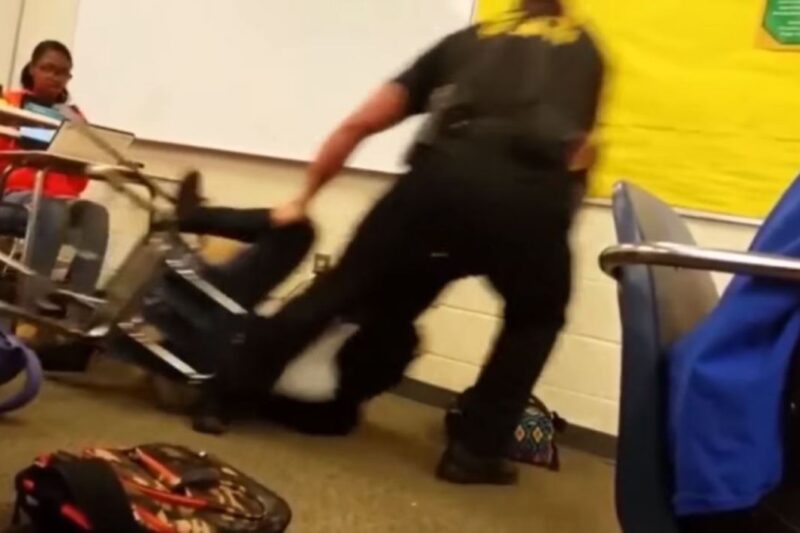
This piece originally appeared on MSNBC.
A turning point in the civil rights movement came in the spring of 1963 when the police and fire departments of Birmingham, Alabama, trained fire hoses and sicced police dogs on demonstrators protesting segregation at lunch counters and stores in that city. Though black people had long been the targets of such violence, particularly in the South, the presence of news cameras brought this shocking reality into the living rooms of people across the country for the first time.
The impact of this brutal footage was dramatic, leading President Kennedy to conclude, “The events in Birmingham … have so increased the cries for equality that no city or state legislative body can prudently choose to ignore them.”
The use of violence like this against anyone was shocking, but the fact that it was being directed against children as well as adults brought home the brutality with particular force.
Fast forward to this week in Richland County, South Carolina, where a disturbing video has emerged of a black high school student sitting at her desk. A white, male school police officer appears to put his hands around her neck, then yanks her back, flipping over her chair and sending her crashing to the floor. He then proceeds to fling her across the room.
This video is a textbook example of the dangers of the misuse of police officers in schools. There is little indication of efforts to defuse the situation, to reason with the child, or to otherwise act in a way that is humane and appropriate.
Instead, the footage depicts an adult officer asserting his power and authority over a student who has not threatened or harmed anyone.
What’s also chilling about the video is how casual the violence appears. Had a teacher or school administrator engaged in the same behavior, there would have been little question that it would be deemed unacceptable.
Wearing a uniform and a badge should not make someone less accountable for their actions. In fact, it should make them more so.
Though this video is difficult to watch, it’s instructive. What the viewer is forced to confront is symptomatic of broader issues relating to the school-to-prison pipeline in general and the misues of police in schools specifically.
In the name of so-called “school security,” children — and particularly students of color and students with disabilities — are often the targets of excessive use of force. After a recent, in-depth analysis of school discipline data, The New York Times concluded that in schools where administrators rely on law enforcement to discipline students, relatively minor offenses are more likely to be inflated to criminal offenses to the detriment of the students.
The enforcement activities of police in schools must be limited to issues involving violations of criminal laws and not school disciplinary rules.
Too often, children in schools have found themselves targeted by officers, not protected by them. This must end.
It is important that all schools use this as an opportunity to examine carefully the way officers operate in their institutions. In deciding what role law enforcement plays on campus, it would be wise first to examine whether resources invested in school security might not be better expended on enhanced counseling services and programs involving positive behavior support. Both have been proven to create school environments that are safe and conducive to learning.
For those instances when it is appropriate for officers to intervene, their responsibilities and authority must be clearly defined and there should be transparency regarding their actions. Fairness and sound educational policy suggest that their responsibilities should be limited to the enforcement of criminal laws and that they ought to be trained to deal with young people in all circumstances.
We must assure that all of our children are given the opportunity to be educated in schools in which they can learn safely, free from danger, including by those who are charged with protecting them.
To paraphrase President Kennedy, this is a cry that no school can prudently choose to ignore.

